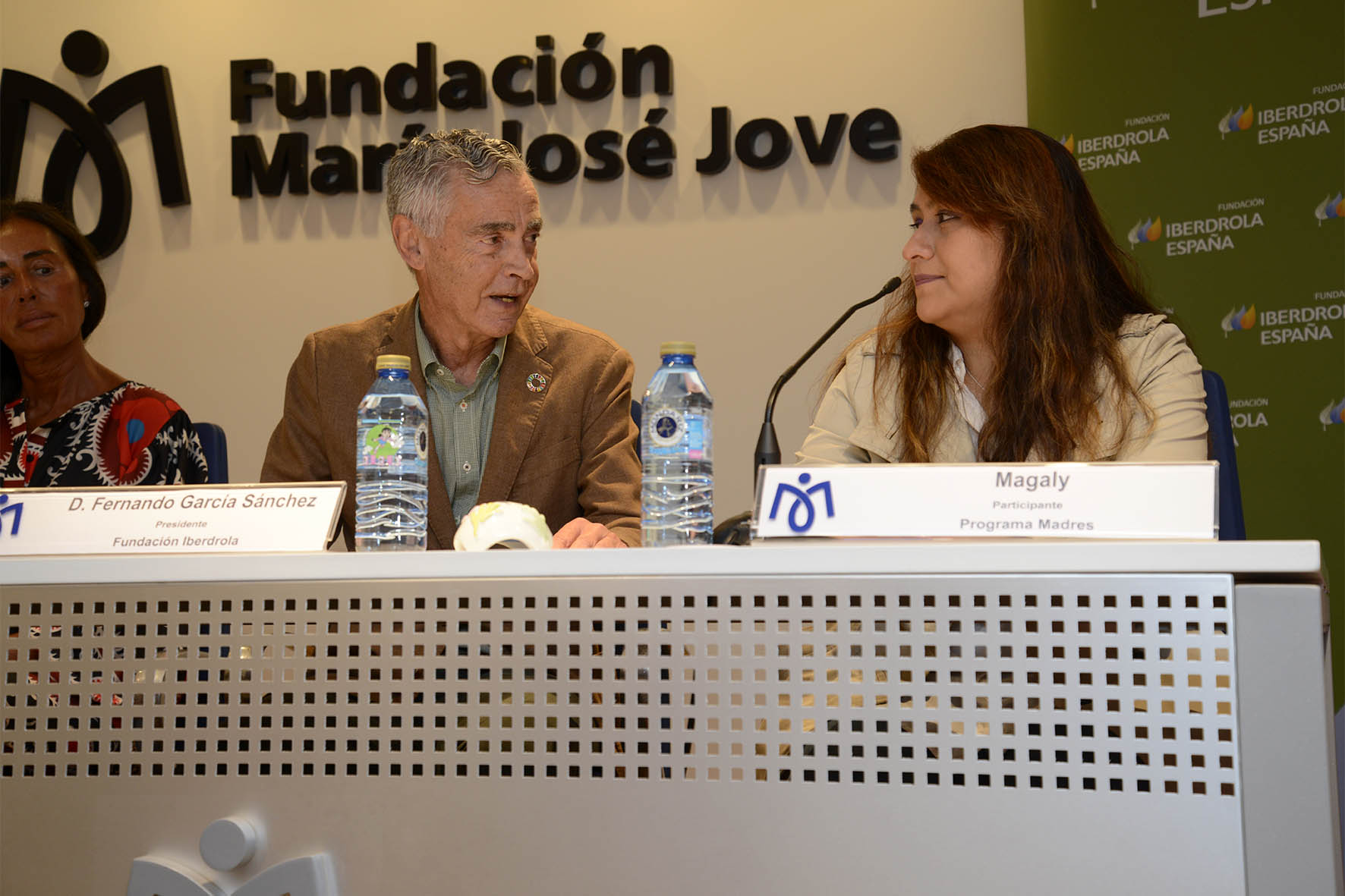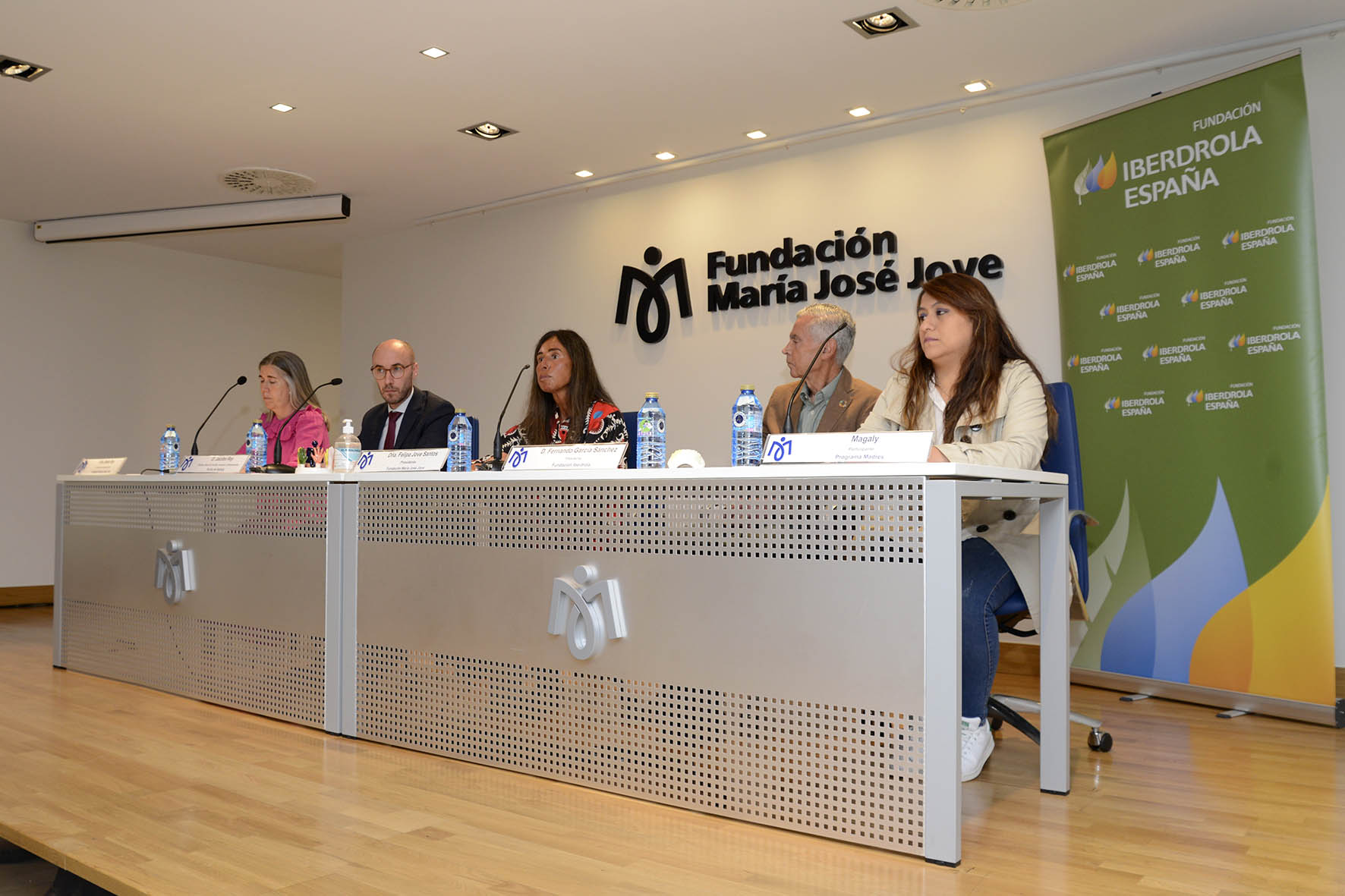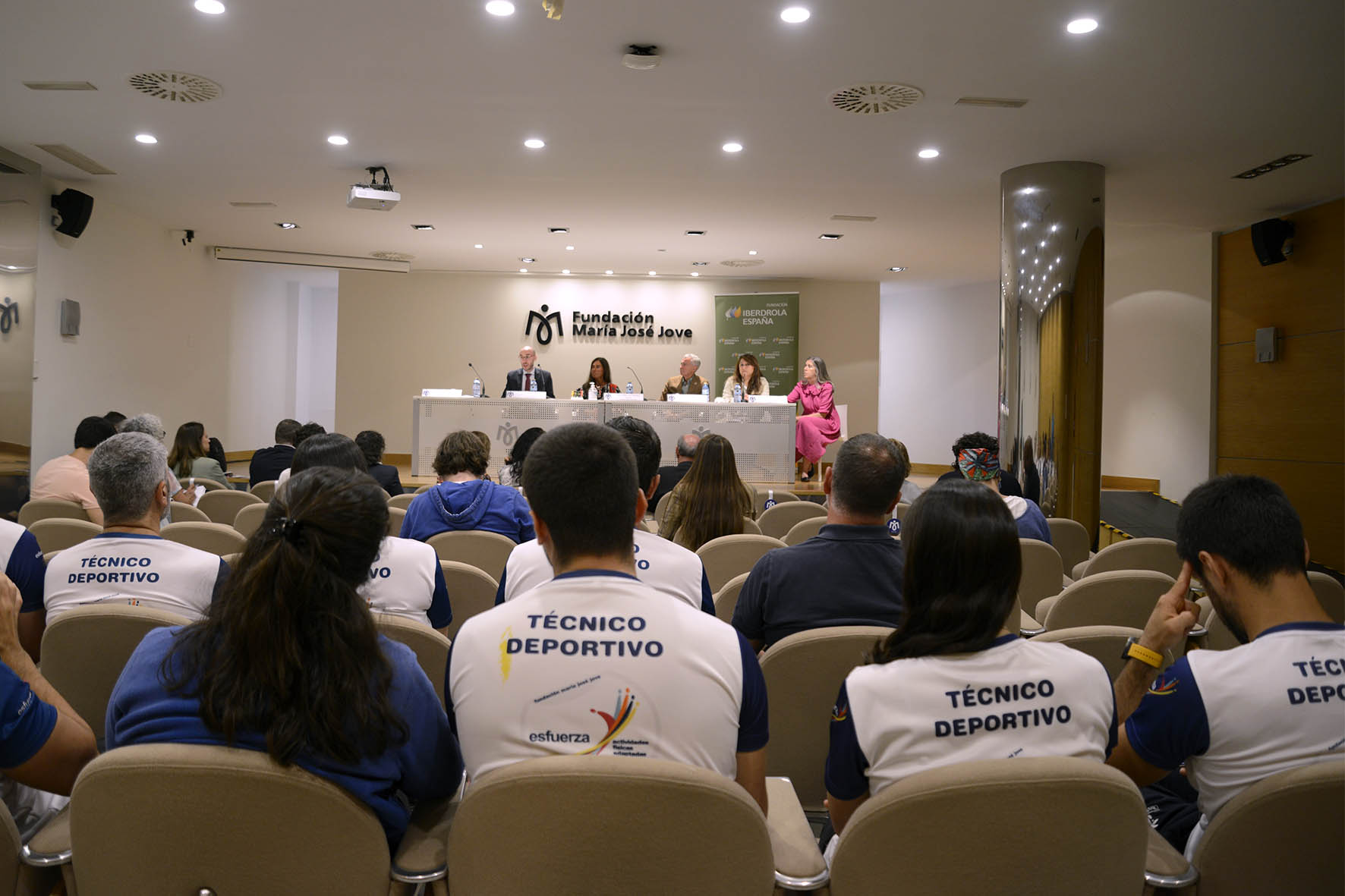A Coruña, June 7, 2023
To reduce the risk of personal, labor, and family destructuring. This is the objective of the alliance carried out by Fundación María José Jove Foundation, Fundación Iberdrola, and the Xunta de Galicia through MADRES: a biannual program aimed at single women with children at risk of exclusion.
This alliance was made public this morning in A Coruña at a ceremony in which the first half of the year was reviewed and which was attended by Jacobo Rey, general director of Family, Childhood, and Demographic Dynamization of the Xunta de Galicia; Fernando García Sánchez, president of the Fundación Iberdrola; Felipa Jove, president of Fundación María José Jove; Belén Rey, director of Communication of Fundación María José Jove and head of the MADRES program and a user of the program.
The MADRES program is an initiative of Fundación María José Jove that now, thanks to the support of Fundación Iberdrola and the Consellería de Política Social e Xuventude, has been able to expand both its scope and the number of beneficiaries.
Thus, if in its first years, 164 women from the city of A Coruña were assisted, this year 2023 there will be more than 100 women benefiting from this program, which has already been extended to the municipalities of the Consortium of As Mariñas and Pontevedra. And in the autumn of this year, it will be launched in the Mancomunidad de Valmiñor (Baiona, Nigrán, and Gondomar). It should be noted that there is currently a waiting list.
Profile of participating mothers
The participants are referred by municipal social services, NGOs, primary care centers, family counseling centers, or mental health units. Most of them are single mothers with young children, mainly between 0 and 8 years old, although there are also participants with children over 12 years old. In many cases, they are alone in Spain as their extended family is in their country of origin. Some of them live in shared apartments or foster homes.
Concerning their education, we find quite disparate cases, some women have university education pending homologation, while others have basic studies. The vast majority have training and/or work experience in the fields of hospitality, cleaning, and/or care of dependents, although there are also lawyers or computer engineers.
Currently, 52% of the participants come from South American countries, mainly Venezuela, Peru, and Bolivia. The rest come from Ukraine (18%), African countries (9%), the rest of Europe (2%), and some from Spain.
Their employment situation is generally precarious. Those who work do so without a contract or a fixed schedule. This situation, although it allows them to generate some income, implies an instability that prevents or hinders aspects such as work-life balance, renting a house, etc.
OPERATION
The success of MADRES lies in the fact that it designs an individualized itinerary for each user and provides personalized follow-up. On top of this, we must add sessions in specific groups each week, due to the difference in profiles, “micro-groups” have been created according to the pace and interests of the participants.
The duration of the program for each user is 6 months, although there is the possibility of participating throughout the year, both for new participants and for temporary leaves of absence for personal, work, training, or health reasons.
In addition, there is networking with the referring entities, both municipal social services and other entities, a psychologist, a lawyer, and other entities that provide resources, training, and job opportunities.
The program not only favors labor and training inclusion but also social inclusion at all levels: with more schooling for children, participation in sociocultural activities, greater knowledge of the environment and social resources, etc.).
MADRES offers the beneficiaries the possibility of maintaining contact beyond the program hours for doubts, consultations, or other formalities.
WHAT MADRES DOES
- Provides advice and support in accessing social resources (benefits, aid, procedures…).
- Provides emotional support through a specialist in clinical psychology.
- Offers training for job placement through courses, preparation of interviews, or preparation of professional profiles.
- Mediates with entities, companies, and individuals for possible job and training offers.
- Coordinates and mediates with educational personnel and the Social Services involved.
Iberdrola, committed to society
Iberdrola, through the Social Program of Fundación Iberdrola España, has allocated more than 12 million euros to social initiatives in the country and helped a total of 414,546 people. Since the launch of this Plan in 2010, the company has promoted more than 500 projects in collaboration with more than one hundred social entities, contributing to the fight against child poverty, school support, and the social integration of children, young people, and women in vulnerable situations. The Social Program has enabled the creation of 1,830 jobs and the participation of 8,538 volunteers.
Fundación Iberdrola España also focuses its activities on its scholarship program in the fields of energy, biodiversity, and the environment, on supporting research on issues related to energy and climate change, as well as in the cultural field, focusing on the restoration and maintenance of the cultural and artistic riches of the Iberian Peninsula’s heritage.



